Grassland Groupies
Bee City Wichita
Bee City Wichita brings the community together to sustain pollinators by increasing the abundance of native plants, providing nest sites, and reducing the use of pesticides throughout the Wichita metropolitan area.
On this page:
Making Wichita an oasis for native pollinators.
As an official affiliate of Bee City USA, Bee City Wichita brings the community together to sustain pollinators by increasing the abundance of native plants, providing nest sites, and reducing the use of pesticides throughout the Wichita metropolitan area. Bee City Wichita also works to inspire others to take steps to conserve pollinators through education and outreach.
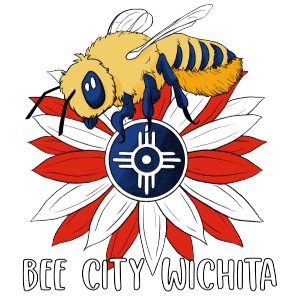
Wichita is committed to pollinators.
The title of Bee City is awarded by The Xerces Society to cities that officially declare a commitment to wild pollinators—and that demonstrate they’re doing it. To become an affiliate with Bee City USA, the City of Wichita committed to these goals with a resolution signed by City Council.
Grassland Groupies leads the Bee City Planning Committee to help coordinate efforts to meet this goal.
By providing space for pollinators, we also increase our green space for people. This provides Wichitans new opportunities to get outside, connect with each other, and learn together. Our ultimate goal is to create a city that is a thriving environment for people, plants, and pollinators alike.
Bee City Affiliate Requirements
-
Pollinator Habitat Restoration
The Bee City Planning Committee works with the City of Wichita to identify areas of improvement and development of pollinator habitat.
-
Pollinator-Friendly Practices in the City
Bee Cities are dedicated to reducing pesticide use and creating a pollinator-friendly pest management plan.
-
Native Pollinator Education
From pollinator awareness events to guided hikes in parks, a big part of our mission is educating people about native pollinators and how to help them.
Bee City Wichita’s resolution outlining exact goals can be viewed below. For a full listing of Bee City commitments and to learn more about the initiative, visit the Bee City USA website.
Bee City Wichita's 2024 impact in numbers
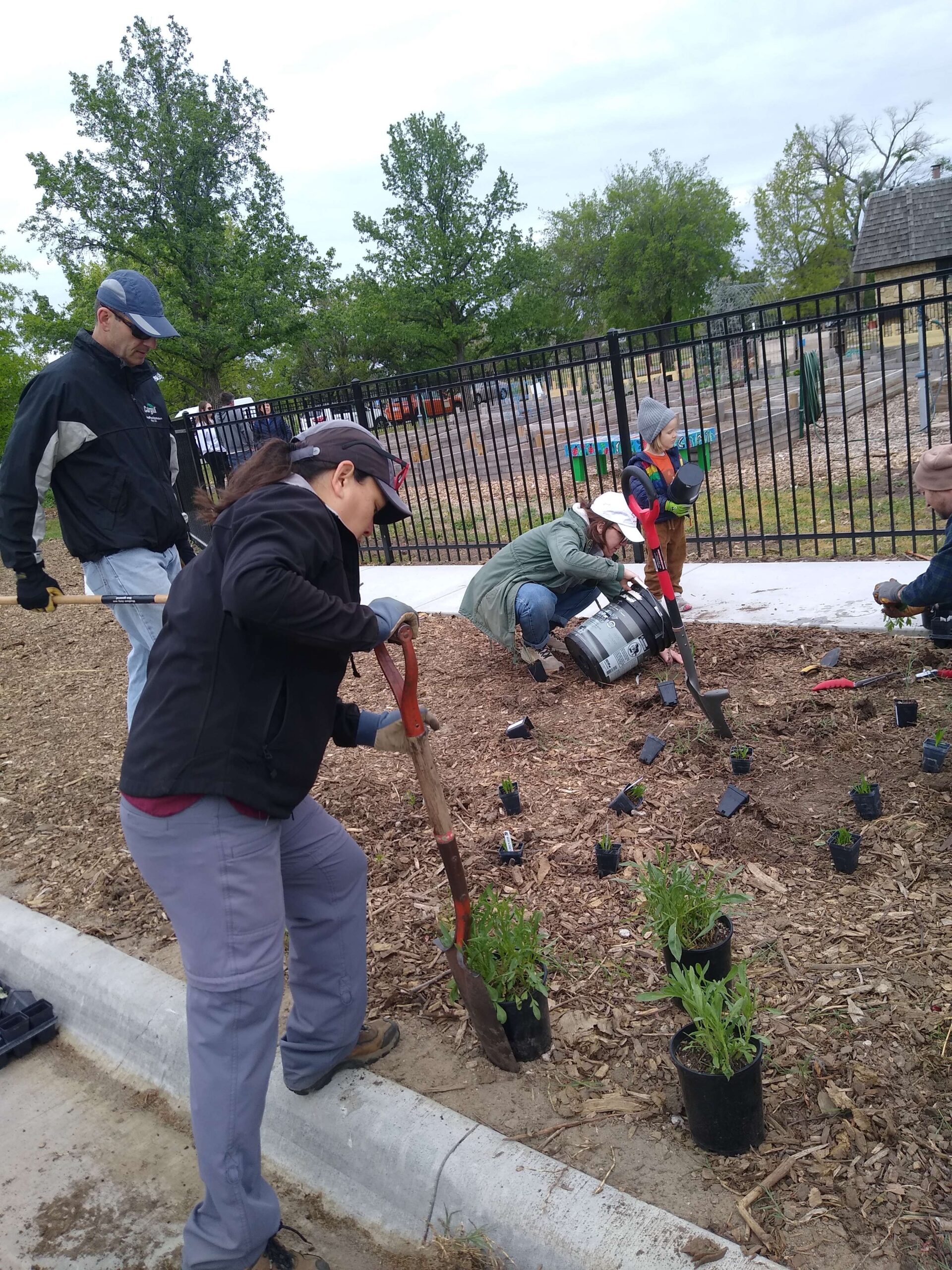
31,255 sqft of new native pollinator habitat through 2024.
The Bee City Wichita initiative directly contributed to restoring and creating 31,255 sqft of pollinator habitat in the Wichita metropolitan area through 2024, and we’re just getting started.
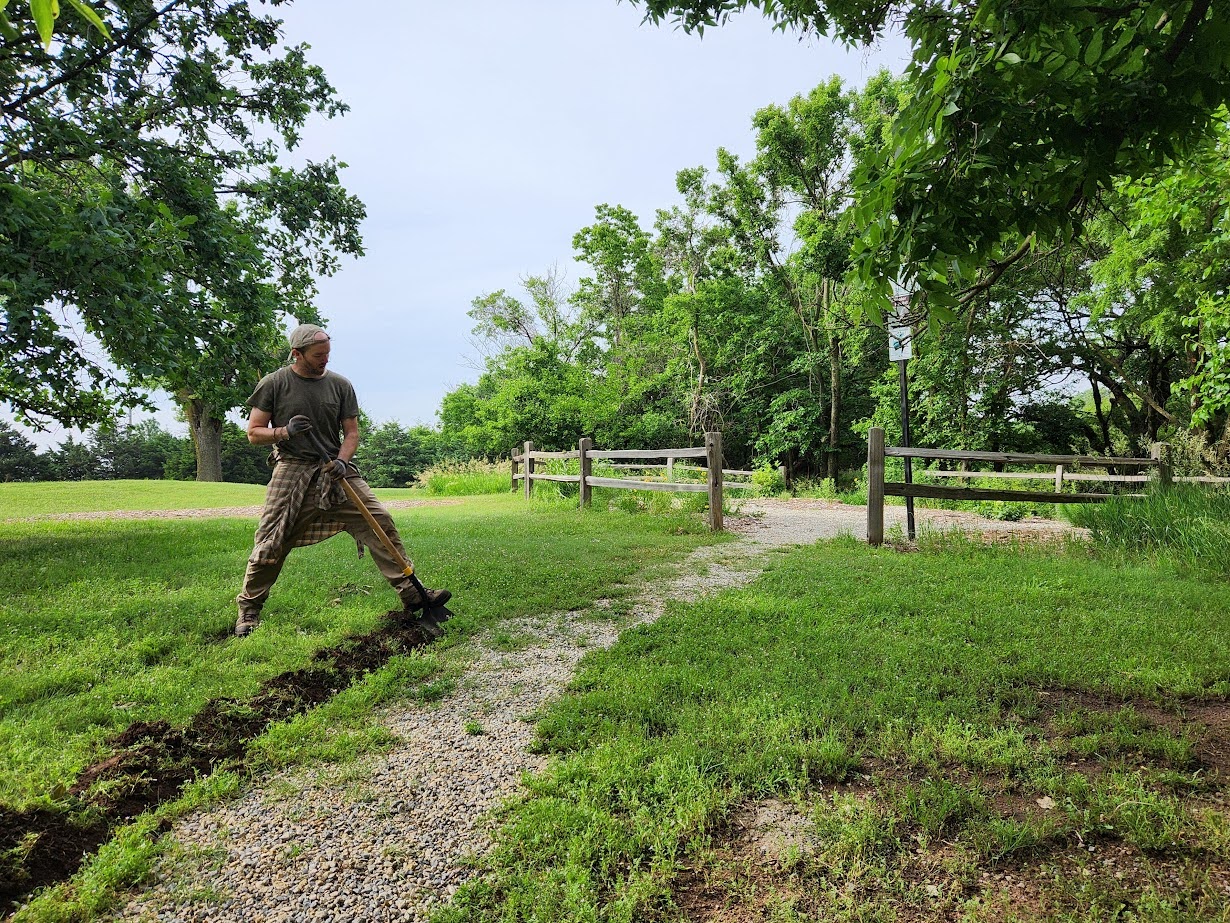
Volunteers poured 140 hours of labor into local native gardens throughout the year.
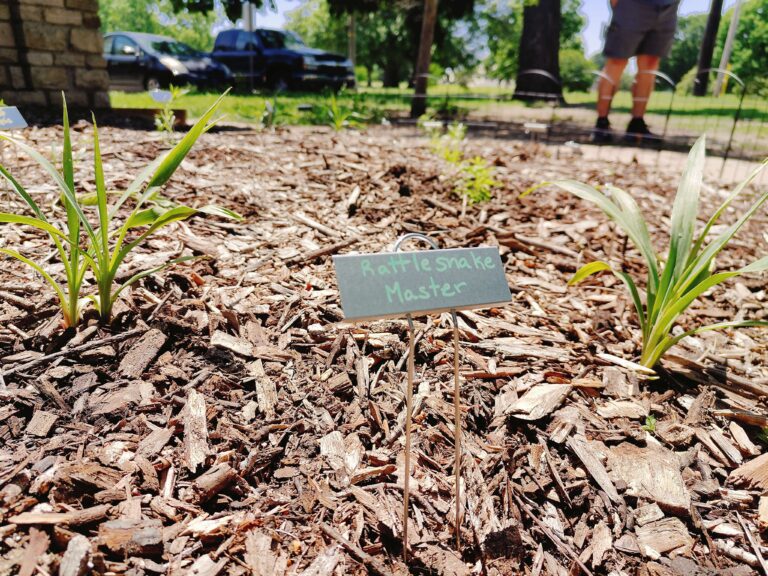
8,720 people learned about native pollinators through Bee City Wichita programs.
The case for native gardens in Kansas
- Water Friendly
- Wildlife’s Favorite
- Better with Time
Once established, native plant gardens take very little or even no extra watering to keep looking great. Saves you time and money.
Not just insects will thank you for the good meal and a place to raise their young. The birds will too along with all of our other native wildlife.
Native gardens change and grow with time. If allowed to, the plants will replenish themselves and spread, saving you money over annuals.
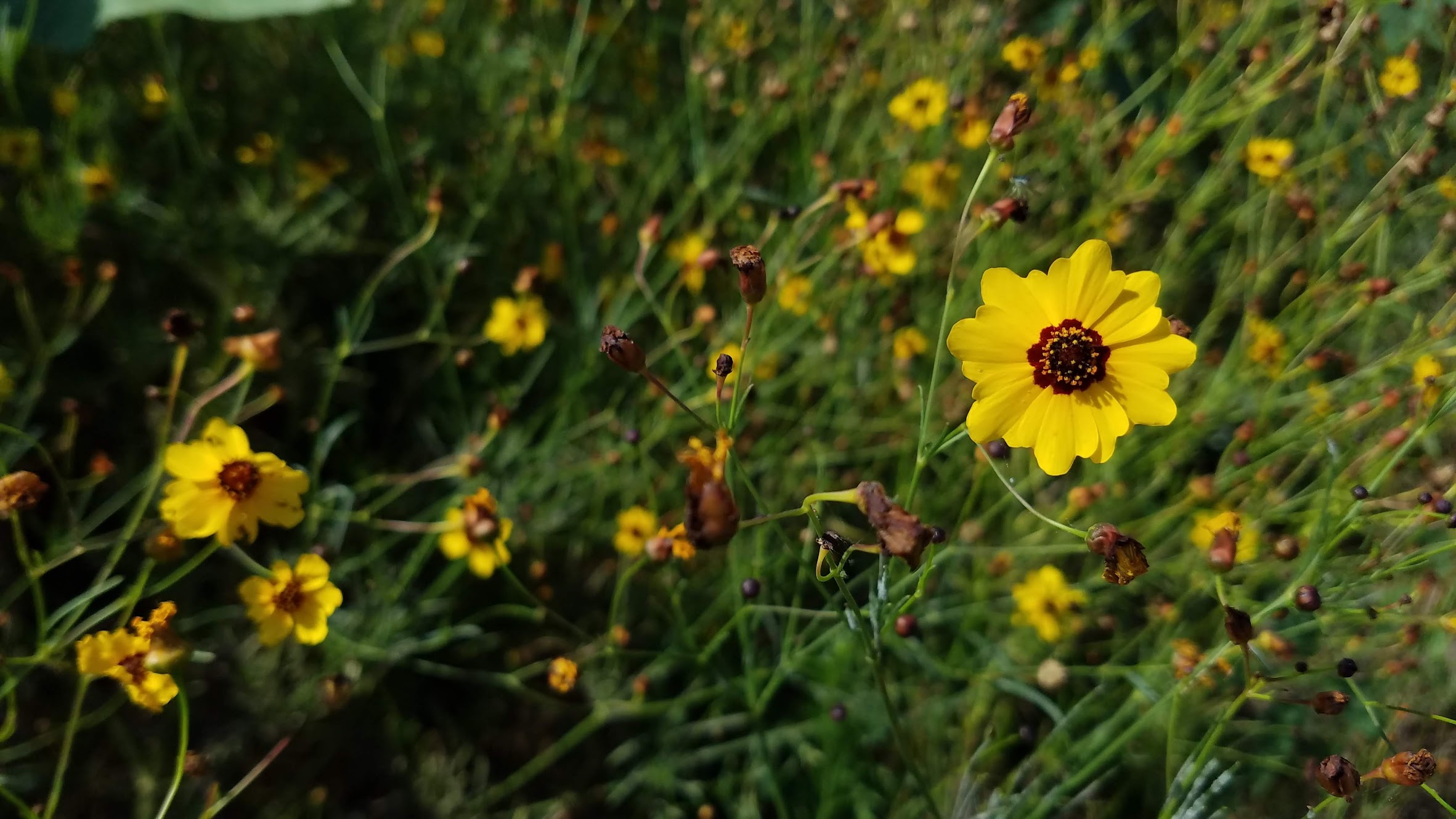
Native plants are beneficial not only to the environment around you but can lower the time and money spent on a garden. Every garden needs upkeep, so planting native is still a commitment.
When looking for native plants, it’s best to use plants grown near your bioregion. That’s why we recommend sourcing from the local growers on our native gardening resource page.
ICT Bee Fest celebrates native pollinators
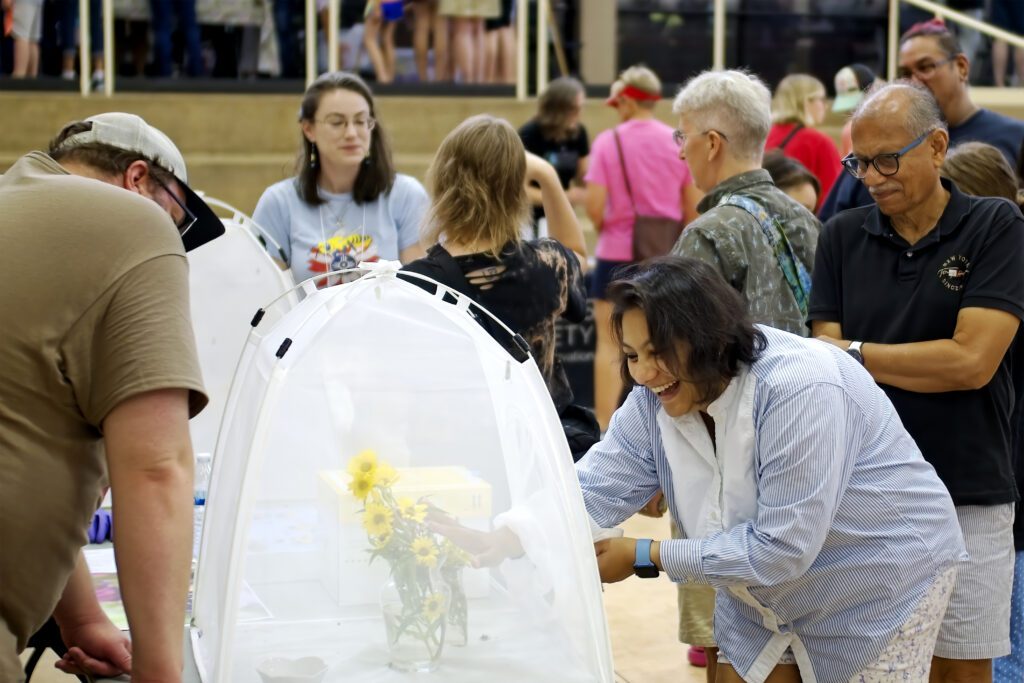
ICT Bee Fest is the flagship education event run by Bee City Wichita, and the largest celebration of pollinators in Kansas. This free annual event at the Mid-America All-Indian Museum celebrates native pollinators, native plants, and related gardening and conservation topics.
By changing our gardens to be filled with beautiful native flowers, grasses, and shrubs we can make a huge difference. These native plants provide food, shelter, and a place to raise young that cannot be matched by non-native plants. It’s time to rethink our endless expanses of lawns.
Get Involved in Bee City Wichita
Help us plant and maintain public gardens.
We need volunteers to create and take care of gardens and green spaces throughout the city! We also plan group work days to help improve habitats and always need extra hands/tools. Subscribe to Bee City Wichita emails here, or using the form below.
Planting and work events are always open to the public. Events will be posted to our events calendar and the Grassland Groupies Facebook page under Events.
Certify your garden or restoration work.
Our new habitat certification program counts your personal efforts toward the city-wide impact of Bee City Wichita, and you get a locally designed and printed 9 x 12″ sign to add to your pollinator habitat.
Attend Committee Meetings - or join the Committee!
Committee meetings are open to the public, and we’re actively recruiting representatives for Wichita districts to help us coordinate improvement projects. See below for more details.
Buy Bee City Wichita Merch.
Purchasing from our online Bonfire merch store supports Bee City Wichita. We also sell locally printed merch at events like ICT Bee Fest.
Bee City Planning Committee
Meet the Bee City Planning Committee! This group meets often to discuss future projects and possible areas of improvement in Wichita. While not an official board for the City of Wichita, we communicate closely through our city Liaison to ensure meaningful collaboration.
We want to have a committee member in each city council district so if you see a need that you think you can fill, reach out to learn more.
- Nicole Brown, Committee Chair, District 3 Representative, Grassland Groupies
- Rachel Roth, Committee Co-Chair, Grassland Groupies
- Gary Farris, City Liaison, Park and Recreation
- Krista Dahlinger, Kansas Native Plant Society
- Dexter Mardis, District 1 Representative
- Dr. Ana Jurcak-Detter, District 4 Representative
- Seth Macy, District 6 Representative
Attend a public committee meeting in 2026
February 24
March 24
April 28
May 26
June 23
July 28
August 25
Sept TBD
October 27
November/December the committee does not meet.
Bee City Wichita committee meetings are free and open to the public, hosted at the Advanced Learning Library in the Keeney Stevens Board Room (second floor) from 6:30-7:30pm.
6:30-6:45 PM: Public comment period. Community members are welcome to give ideas or feedback on the initiative.
6:45-7:30 PM: Updates and discussion about the initiative led by the committee.
If you have a comment/proposal you would like to make during the meeting please email Nicole ahead of time to save a timeslot: nicole@grasslandgroupies.org
